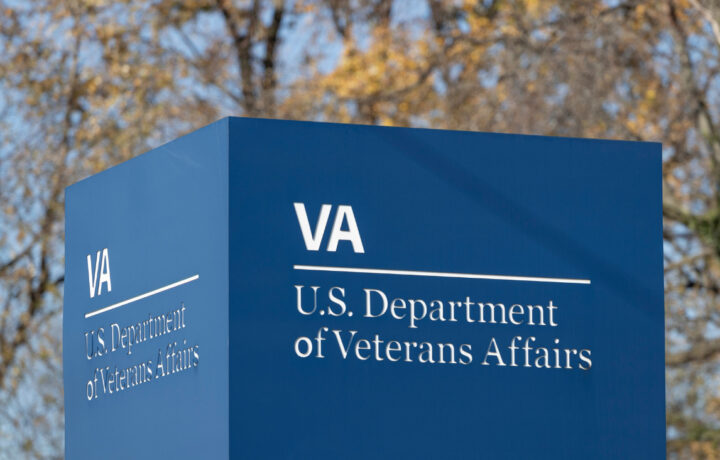The president of the Paralyzed Veterans of America called upon lawmakers to resolve the Department of Veteran Affairs benefit budget shortfall in advance of next week’s deadline. If Congress is unable to approve an additional $2.9 billion in mandatory funding by September 20, around seven million veterans and their families could see their VA funding delayed next month.
“As a nation, we have an obligation to ensure our veterans, their eligible family members, and survivors receive the VA benefits they earned,” Thomas said in a statement released on Wednesday.
“There is no time for hesitancy; we are days away from many veterans and their survivors losing the ability to pay their mortgages, utilities, tuition, and more,” Thomas added. “Congress must act now to ensure VA has the funding it needs so those who have borne the battle will continue to receive their benefits on time.”
But the nearly $3 billion needed to keep payments coming is just part of what the largest eight veteran groups have said is necessary to continue to support those who served in uniform and are looking for help from Washington. The VA is facing a $12 billion shortfall for fiscal year 2025 (FY25).
“After addressing our earned benefits, Congress must immediately turn its attention to deliver an extra $12 billion requested by VA to provide medical care for veterans in fiscal year 2025,” Thomas continued. “While we support efforts to ensure VA is held accountable for the use of its funds, our veterans and their families – especially those with catastrophic injuries – who have given so much to this country must not be left to suffer in the meantime.”
Emergency Funding Necessary
House Republicans have led the effort to provide supplemental funding, which would provide the VA with the stated $3 billion – enough to continue to pay benefits to veterans through the end of the fiscal year. The Veterans Benefits Continuity and Accountability Supplemental Appropriations Act, introduced late last month, would fund veterans’ compensation, pension, and readjustment benefits.
According to a report from The Hill, the bill calls for around $2.9 billion in additional funding for the VA, of which about $2.3 billion would go toward the Veterans Benefits Administration for compensation and pensions. About $597 million would go toward readjustment benefits.
Yet, it wouldn’t address next year’s anticipated $12 billion shortfall.
PACT Act Led to Shortfall
The VA has cited the record levels of healthcare and benefits directed to veterans following the passage of the PACT Act – also known as The Sergeant First Class Heath Robinson Honoring our Promise to Address Comprehensive Toxics Act of 2022. The legislation resulted in increased enrollment in VA health services, appointments, and application benefits.
It expanded veterans’ eligibility for VA healthcare to those who were exposed to toxic substances during their military service, and about 740,000 veterans have enrolled for the services – a 33% increase over the previous two-year period since the PACT Act was signed into law.
The VA also hired more than 61,000 healthcare workers in fiscal year 2023 (FY23), while the Veterans Health Administration (VHA) has more than 400,000 total employees, its largest workforce so far, the Federal News Network reported.
However, in its FY25 budget request, the VA announced it would reduce its workforce by around 10,000 employees, with most coming from the VHA.
Solving the Issue
Officials within the VA see the supplemental funding as a band-aid on the problem, but the Senate version of the House bill will call upon government watchdogs to identify possible solutions. The Government Accountability Office (GAO), which the Senate bill charged with reviewing the shortfall, warned last year that the VA should address gaps in its quality assurance process.
The House bill would require the inspector general at the VA to conduct a review of the budget shortfall and its causes.
Much More to Be Done
Though lawmakers do seem to be looking at the problem, the long-term funding issues have also been a long time coming.
“With the passing of the MISSION Act, veterans are now eligible for Community Care, allowing them to access private healthcare when VA facilities are overloaded. However, the VA seems to be underutilizing this resource, and the current financial strain could push them to make better use of it, expanding access to timely medical care in the community,” explained Brandon Newberry, a veteran disability lawyer and founder of Newberry VA Disability, LLC.
“On the benefits side, the funding shortfall has highlighted deeper issues within the VA,” Newberry told ClearanceJobs. “From what I can see, the real problem isn’t just a lack of funds—it’s a training issue. The VA’s push to hire more personnel to speed up decision-making is admirable, but without adequate training for decision officers and Compensation and Pension (C&P) examiners, the appeals process remains flooded.”
By improving training, the VA could drastically reduce the number of incorrect or incomplete decisions, which would, in turn, reduce the volume of appeals, Newberry suggested.
“With proper training, fewer veterans would have to navigate the complex appeals system, alleviating pressure on both the department and the veterans it serves,” he added. “This isn’t just a financial issue—it’s an operational one that better training could resolve.”



